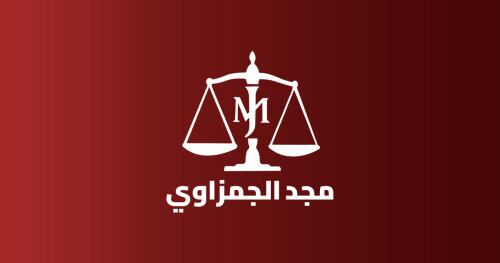Best State, Local, and Municipal Law Lawyers in Hashemite Kingdom of Jordan
Share your needs with us, get contacted by law firms.
Free. Takes 2 min.
Or refine your search by selecting a city:
List of the best lawyers in Hashemite Kingdom of Jordan

About State, Local, and Municipal Law in Hashemite Kingdom of Jordan
State, Local, and Municipal Law in the Hashemite Kingdom of Jordan governs the activities and legal matters arising from Jordan's regional, local, and municipal governance frameworks. This area of law defines the powers and responsibilities of state and local government entities and regulates the interaction between citizens and these bodies. Relevant legal issues may involve the enforcement of municipal regulations, legislations pertaining to local governance, and matters related to public resources and services.
Why You May Need a Lawyer
Legal assistance may be required for various reasons in the realm of State, Local, and Municipal Law. Individuals and businesses may need a lawyer to navigate issues such as zoning and land use disputes, compliance with local ordinances and regulations, property taxes, and municipal contract negotiations. Lawyers specializing in this field can also assist with litigation against government bodies, help understand local governance changes, and provide guidance on municipal elections and electoral disputes.
Local Laws Overview
Jordan's local laws encompass taxation, public works, zoning, health and safety regulations, and more. Each municipality can enact specific regulations within the framework of general national laws. Key aspects include:
- Zoning and Land Use: Control over property and land use to ensure orderly development.
- Public Health and Safety: Regulations concerning sanitation, waste disposal, and health standards.
- Local Taxation: Municipal governments can levy taxes to fund local services.
- Public Services: Management of utilities like water supply, waste management, and local transportation systems.
Frequently Asked Questions
What is the role of a municipality in Jordan?
Municipalities in Jordan are responsible for local administration and services, including urban planning, waste management, and maintenance of public infrastructure.
Can disputes with municipalities be legally challenged?
Yes, legal disputes with municipalities can be challenged in court. However, such cases often require specialized legal expertise.
How are local taxes determined?
Local taxes are determined through municipal by-laws within the limits established by national legislation, and they fund municipal services.
Do local governments in Jordan have authority over environmental regulations?
Yes, local governments can enforce environmental regulations as part of their public health and safety responsibilities.
What legal recourse is available if a local ordinance is violated?
Citizens can challenge the enforcement or validity of local ordinances through administrative procedures or in court.
Who oversees municipal elections in Jordan?
Municipal elections are overseen by the Independent Election Commission to ensure fairness and transparency.
Can municipalities create their own legal statutes?
Municipalities can enact by-laws as long as they are consistent with national laws and within the powers granted to them.
Is legal representation necessary in property disputes with local governments?
While not mandatory, having legal representation is advisable to navigate the complexities of property law and local regulations.
How are changes to local governance communicated to the public?
Changes are typically communicated through official publications, public notices, and local government websites.
What is the process for contesting a zoning decision?
Contesting a zoning decision involves filing an appeal with the relevant municipal or judicial authority, often requiring legal documentation and representation.
Additional Resources
For assistance with State, Local, and Municipal Law in Jordan, consider reaching out to the following:
- Ministry of Local Administration: Oversees municipalities and provides guidance on local governance issues.
- Jordanian Bar Association: Can connect individuals with lawyers specializing in municipal law.
- Local Government Units: Contact your local municipality for specific ordinances and procedures.
- Independent Election Commission: Handles municipal elections and related queries.
Next Steps
If you require legal assistance in State, Local, and Municipal Law in Jordan, begin by identifying the nature of your legal issue, whether it's a dispute with local authorities, a matter concerning public services, or a need for legal advice in local governance. Consulting with a lawyer who specializes in this field can provide clarity and guide you through the appropriate legal processes. Reach out to the Jordanian Bar Association for a list of qualified legal professionals, or directly contact a law firm with expertise in municipal law for personalized assistance.
Lawzana helps you find the best lawyers and law firms in Hashemite Kingdom of Jordan through a curated and pre-screened list of qualified legal professionals. Our platform offers rankings and detailed profiles of attorneys and law firms, allowing you to compare based on practice areas, including State, Local, and Municipal Law, experience, and client feedback.
Each profile includes a description of the firm's areas of practice, client reviews, team members and partners, year of establishment, spoken languages, office locations, contact information, social media presence, and any published articles or resources. Most firms on our platform speak English and are experienced in both local and international legal matters.
Get a quote from top-rated law firms in Hashemite Kingdom of Jordan — quickly, securely, and without unnecessary hassle.
Disclaimer:
The information provided on this page is for general informational purposes only and does not constitute legal advice. While we strive to ensure the accuracy and relevance of the content, legal information may change over time, and interpretations of the law can vary. You should always consult with a qualified legal professional for advice specific to your situation.
We disclaim all liability for actions taken or not taken based on the content of this page. If you believe any information is incorrect or outdated, please contact us, and we will review and update it where appropriate.
Browse state, local, and municipal law law firms by city in Hashemite Kingdom of Jordan
Refine your search by selecting a city.














